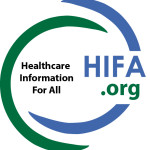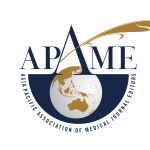 Global health is fundamentally dependent on the availability and use of health research. It is well known that much research is of poor quality, is not applicable to low-resource settings, and/or is not even published (sometimes for commercial reasons). Nevertheless there is of course a massive and growing body of research that *is* of high quality, is relevant and applicable to low-resource settings, and is published. And yet, perversely, such research is often not available to those who need it most, leading directly or indirectly to poor quality healthcare for the majority of the world’s population.
Global health is fundamentally dependent on the availability and use of health research. It is well known that much research is of poor quality, is not applicable to low-resource settings, and/or is not even published (sometimes for commercial reasons). Nevertheless there is of course a massive and growing body of research that *is* of high quality, is relevant and applicable to low-resource settings, and is published. And yet, perversely, such research is often not available to those who need it most, leading directly or indirectly to poor quality healthcare for the majority of the world’s population.
The WHO Constitution “enshrines the highest attainable standard of health as a fundamental right of every human being. The right to health includes access to timely, acceptable, and affordable healthcare of appropriate quality … as well as the underlying determinants of health, such as … access to health related education and information.” Health research, and its availability, is the foundation of the right to health.
Researchers, policymakers, health professionals, and citizens need access to peer-reviewed research, relevant to their context, and in a language they can understand.
There is a growing momentum towards free (and open) access to research. Also, in the past 15 years there have been several important initiatives such as HINARI, eIFL, PERii (INASP) and the WHO Global Health Library, all of which have helped to improve the availability of research in low- and middle-income countries (LMICs). Technological innovations such as the internet and the spread of social media offer further potential to improve access and therefore increase the impact of research across all countries of the world. Social media in its many forms also provides a potential vehicle for communication between researchers, policymakers, health professionals, and citizens that remains largely unexplored.
The trends are positive, but there continue to be many, many limitations, restrictions, and exclusions. There is a long way to go before all, or even the majority, of health research is freely available to all those who need it.
What can be done to accelerate progress?
1. How can health research from LMICs be made more visible and accessible?
2. What more can be done to make research freely available to users in LMICs?
3. How can research be made available in the right language, both for producers as well as consumers of health research?
4. How can we improve access to different formats required by different users in different contexts (eg abstracts, full text of research paper, commentaries, policy briefs)?
5. How can we improve the availability and use of health research in LMICs through non-traditional dissemination channels (eg social media, communities of practice, blogs, mobile phones)?
We invite you to join a major global virtual discussion (20 July – 24 August 2015) to explore these and other questions around access to research, supported by COHRED, APAME, and The Lancet as an official activity in the run-up to the Forum 2015 Global Forum on Research and Innovation for Health, Manila, 24-27 August 2015, held in conjunction with the Asia Pacific Association of Medical Journal Editors 2015 Annual Convention, Manila, 25-26 August 2015.
The key points from the discussions will be presented and discussed at a Special Session on Access to Research at Forum 2015, Manila, on 26 August 2015, by a panel of speakers including representatives of major journals such as The BMJ and Nature and will be considered in any declarations that may emerge from the conference.
The intention is to give a voice to, and learn from, those who are unable to attend the conference in person. This virtual discussion will bring together more than 8000 health researchers, publishers, librarians, policymakers, clinicians and information professionals to focus on key questions around access to health research.
Acknowledgements: We are grateful to The Lancet, COHRED, and APAME for supporting this discussion. We are also grateful to Elsevier, The Lancet and mPowering Frontline Health Workers for their ongoing support for the HIFA Voices database (hifavoices.org), where key points from the discussions will be collated. HIFA is partly funded by the BMA through its Charitable Purposes SubCommittee.
Join here! http://www.hifa2015.org/joinhifa
Competing interests: None declared.
Jose Florencio F Lapena Jr is a professor of the University of the Philippines Manila, President of the Asia Pacific Association of Medical Journal Editors, and President of the Philippine Association of Medical Journal Editors.
Neil Pakenham-Walsh is the coordinator of the HIFA campaign (Healthcare Information For All) and co-director of the Global Healthcare Information Network. He is also currently chair of the Dgroups Foundation, a partnership of international development organisations promoting dialogue for international health and development. neil.pakenham-walsh AT ghi-net.org


